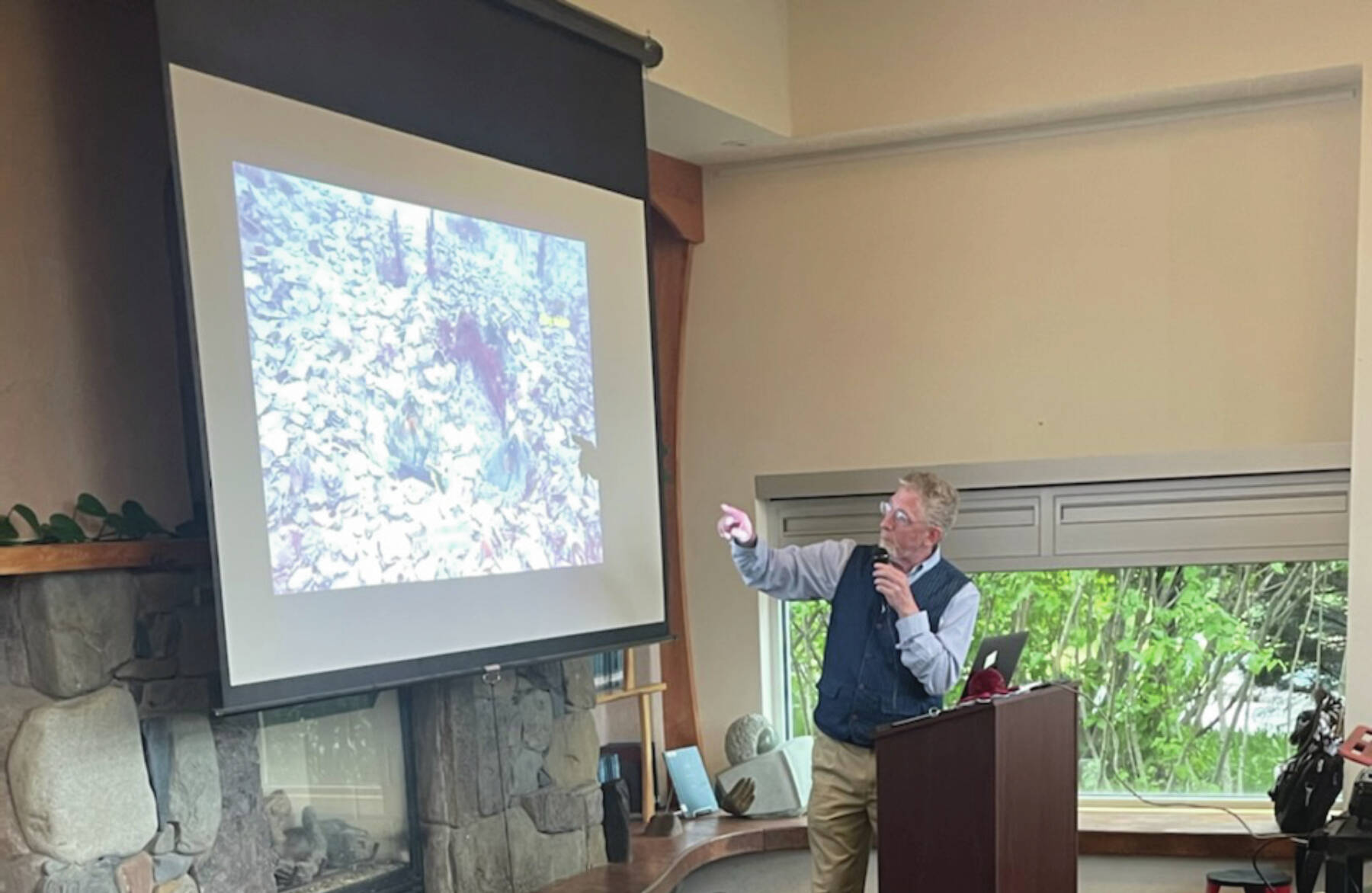Behavioral ecologist and author David Scheel presented his recently published book “Many Things Under a Rock: The Mysteries of Octopuses” to a crowd at the Homer Public Library on June 20.
At the event he talked about how research he had done addressed experiences ranging from the Aleutian Islands to Prince William Sound.
Scheel first came to Cordova in 1993 in the wake of the 1989 Exxon Valdez oil spill.
The Prince William Sound Science Center wanted to make an effort to look at some of the impacts of the spill and the scientific process of research external to the oil corporation research, Scheel said.
The Science Center had an opening for a GIS specialist and Scheel took that position before he started pitching his own research ideas to the Exxon Valdez Oil Spill Trustee Council. He also participated in the planning process for the Prince William Sound Ecosystem Assessment project that looked at impacts of the EVOS on pink salmon and Pacific herring in the Sound. He co-authored some of the papers that came out of that project, including one with Homer scientists Craig Matkin and Eva Saulitis titled “Distribution of Killer Whale Pods in Prince William Sound, 1984-1996,” published in the scientific journal Marine Mammal Science.
His octopus research started because the Trustee Council was receiving communications from the Native communities expressing concern about subsistence resources.
“The communities collect octopuses on these beaches along with bidarki, gumboots and clams. And in 1993 there was visible oil on the shorelines. They wanted help assessing the impacts,” Scheel said.
The communities of Chenega Bay, Port Graham and Tatitlek were reporting that octopuses were harder to find than they used to be. The council put out a solicitation for research proposals and Scheel started working with elders and other village members in these communities to help make a scientific assessment.
“I got funding for two years of research and one year of close-out from the Trustee Council,” he said.
After the preliminary research, additional questions came up.
“The octopuses were mostly not in the intertidal zone, but below the kelp. We got really curious about their distribution with depth. Our next funding source was with NOAA’s National Undersea Research funding to get a submersible and look at the question of ‘Where do you find octopuses in Prince William Sound?’” Scheel said.
Fishermen catch octopuses in all types of gear, mostly crab pots or shrimp pots, he said. “We did very little of that sort of research because it would require hiring a working fishing boat and we were more oriented to walking the shoreline.”
Scheel started work at Alaska Pacific University, and encouraged research projects that would engage undergraduate students.
“Octopus are pretty engaging, so I just started bringing groups of undergraduates out into the field every summer to keep the research going. I’ve been doing that with various funding sources for decades now. And, that’s how things got started,” he said.
Once Scheel received a book contract, the editors were looking for more science and less memoir.
“So, I dialed down the personal stories and dialed up the science behind what we know about octopus and people’s impressions of them, opinions on what it means for them to be in captivity like at Alaska Sea Life Center or harvested for food or bait,” he said.
In his presentation at the library, he also talked about a previous project that concluded with a PBS film featuring Scheel, his daughter Laurel and their pet octopus, Heidi, in “Octopus: Making Contact.” Laurel provided the illustrations for her father’s book.


